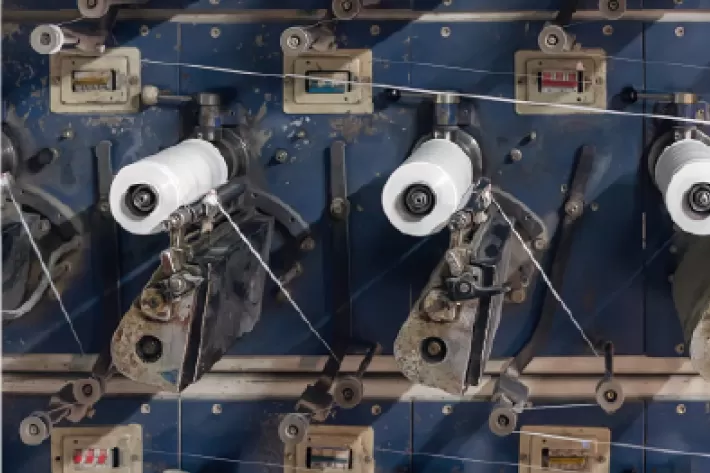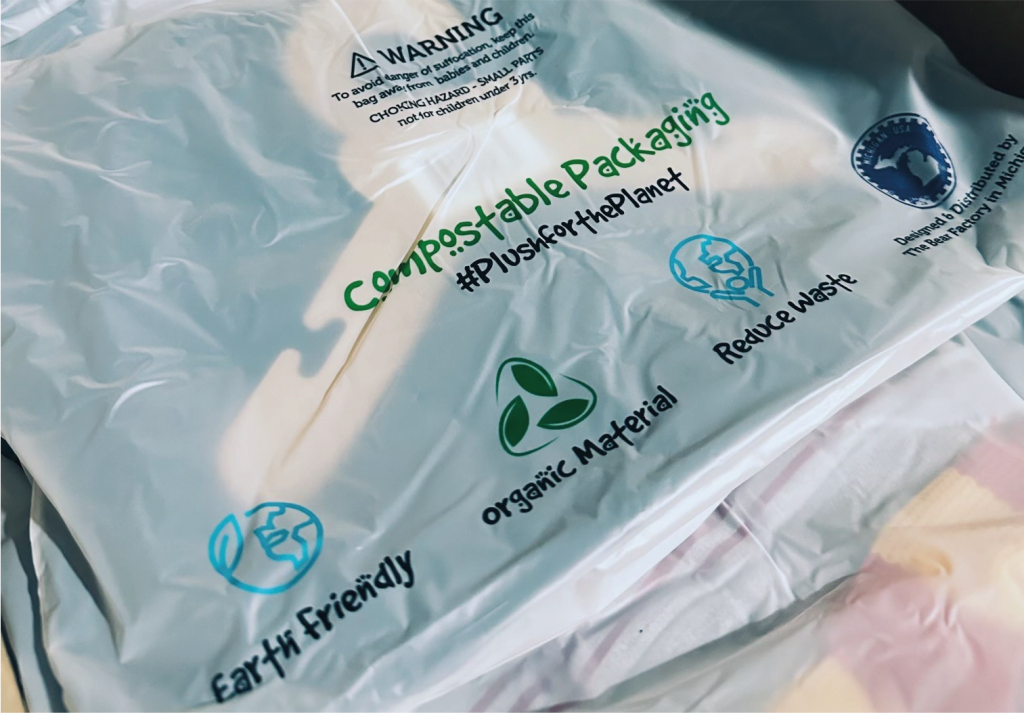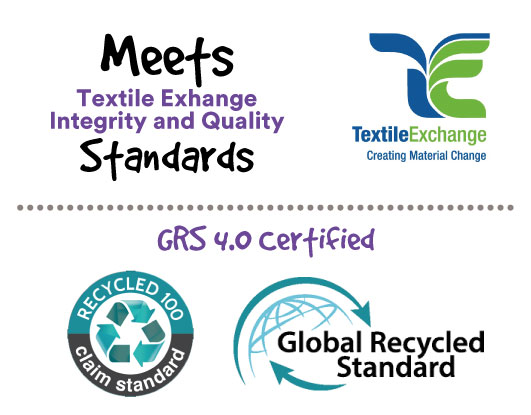Fabrics & Materials
Sustainability in Design
In 2018, after two years of research, our quest for sustainable designs led us to #PlushforthePlanet—our collection of plush animals made from recycled fabrics. We stayed true to our quality, and now proudly offer the world’s first sustainable build-your-own plush line.
Read on to learn more about the sustainability of recycled fabrics, their environmental impact, the materials used in our plush, and our biodegradable packaging.

What are Recycled Fabrics?
Our #PlushforthePlanet line of plush animals uses Recycled Polyethylene Terephthalate or “rPET”. This material is created by collecting, sorting, cleaning, and transforming recycled packaging materials into reusable material, and can be used for packaging, clothing, and, in our case, plush fabrics. Virgin Polyethylene Terephthalate is typically found in bottles, textile waste, and old fishing nets.
Using recyclable plastics supports a Circular Economy by reusing materials instead of relying on virgin resources. The main drawback of rPET is the added cost of processing it into a usable form.
Impact of rPET in Our Process
Packaging & Bioplastics
In 2021, we launched Project 20, aiming to reduce traditional packaging to below 20%. Since then, we’ve transitioned over 90% of our plastic packaging to certified compostable materials, including plush bag liners and protective toy clothing packaging.
Ensure the packaging materials you use are certified compostable bioplastics, made from natural resources like vegetable oils and starches. These products typically decompose in three to six months, and in commercial composting facilities, this can be reduced to six to twelve weeks, according to European Bioplastics.
In a perfect world, we’d eliminate plastics entirely, but for now, let’s take small steps by ensuring what we use has a smaller footprint.


Our Fabrics
Signature Collection | Virgin Polyester
This buttery soft fabric is made into our signature collection plush line that our company was founded on. Polyester is a synthetic fabric generally derived from petroleum. It’s common for polyester to be blended with cotton or another natural fiber to reduce costs, shrinkage, improve durability, and minimize wrinkling.
Environmental Impact: Carbon Emissions: 4.4 kg CO2 eq. / 1000 grams | Freshwater consumption: 26.45 kg / 1000 grams | Energy Consumption: 97.09 MJ / 1000 grams
Plush for the Planet | Recycled Polyester
Launched as the first unstuffed plush line made incorporating recycled (rPET) in 2020, Plush for the Planet items are made of GRS100 recycled fabrics that are of even higher quality than that of our signature collection made of virgin polyester.
Environmental Impact: Carbon Emissions: 1.2 kg CO2 eq. / 1000 grams | Freshwater consumption: 5.08 kg / 1000 grams | Energy Consumption: 13.63 MJ / 1000 grams
Cleaning, Repair, and Reuse
Our initiative, Less Is More educates customers about the harmful toxins in everyday soaps. That’s why we created Bears and Buddies eco soap, made with clean, simple ingredients that are safe for both skin and plushies. This care line helps keep plush toys clean and safe for children while encouraging you to Demand More and Consume Less.
Choose to care for your high-quality plushies so they last for years, instead of discarding them after spills, mud, or daily wear. Join us in supporting the planet by caring for your bears and buddies.
